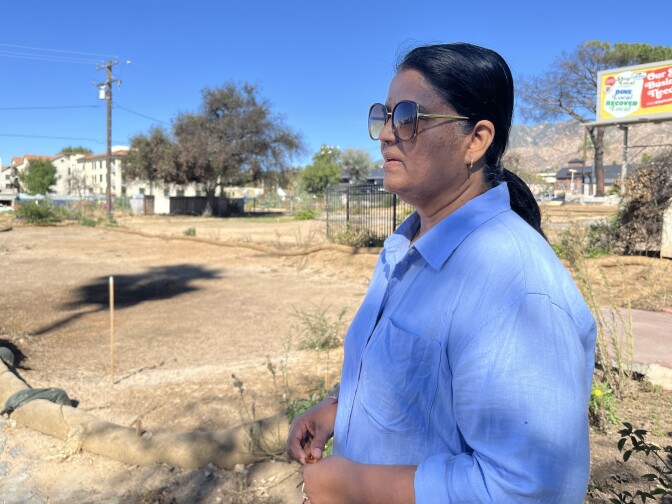Francisca Gunawardena had saved up for years to buy the house she was renting on Lake Avenue in Altadena. It’s where she ran her daycare, and in 2023, it was finally hers.
She spent months fixing up the indoor and outdoor play areas, and remodeled the kitchen where the children ate the meals she cooked for them.
“ I was so happy,” Gunawardena said. She had been a renter since she immigrated to the United States from Sri Lanka in 1999. Then came January’s Eaton Fire.
“ We worked hard to get to this point, and everything is gone within few hours,” she said.
The fire destroyed her house — and the business she had built over 20 years.
At least 17 home daycares were destroyed in the Palisades and Altadena during the January firestorm, in addition to 23 center-based facilities, according to the California Department of Social Services, which licenses childcares. Another 240 had to close due to damage, though many have since opened. (The department said its tracking efforts of this data ended in August).

More than a home
Like many others after the fires, Gunawardena’s family relied on a patchwork of motels and AirBnBs. In May, they found a rental in Lake Elsinore in Riverside County. A few weeks ago, they finally made it back to Altadena, finding a house to rent near their old home.
“We couldn't find a place in Pasadena and Altadena for that long,” she said. What made it especially hard, she added, was she lost her source of income, which she needed for her rental applications.
For home daycare providers, losing a home in the fire has been a one-two punch. It meant not being able to work, either.
Even as Gunawardena pays her rent, she also has to pay off the mortgage of her burned home. “ That's why I just want to start [my daycare] as soon as possible.”

Trouble with finding a rental
Aurys Hernandez, who ran a home daycare with her mother, also hasn’t been able to reopen and, like Gunawardena, has to keep paying the mortgage on the home she lost in the fire. They found an apartment for now, but not one where they can run their daycare out of. “It’s too small,” she said.
She’s since located a larger place where the landlord has given them permission to run a daycare, but she said they’re already locked in a year-lease for the apartment they’re currently in. “I have to wait because paying for three places is going to be hard,” she said.
Hernandez said she's now going to school to get a teacher permit, while finishing the paperwork required to rebuild her house.
“I’m trying to get ready, like as much as I can so when it’s time to open again, I’m going to be ready,” she said, adding that she misses her kids. “I think when, if I see them again, I don’t think they’re going to recognize me.”
Asking the state for help in disasters
The state provided payments to childcare providers like Gunawardena, who received state subsidies for 30 days after the fire, but those ended. The union that represents providers is asking the state for a disaster and emergency relief fund through its contract with the state.
Cristina Alvarado, executive director of the Child Care Alliance of Los Angeles, which supports families and childcare providers, said unlike COVID, the group didn’t receive any state or federal funding specifically for the fires. The group did receive philanthropic support, she said. And providers have also been referred to FEMA, or other organizations like the Low Income Investment Fund. But providers like Gunawardena say they’re paying for a lot out of pocket.

Alvarado said she hopes the state does more to develop disaster relief plans for childcares. “How do we prepare ourselves to make sure that childcare is not forgotten?” she said.
For Gunawardena, she’s hoping to rebuild soon. Every other day, she walks to her old house, which is now just an empty lot with a gate. She thinks about the kids who used to run around. There is one plant that survived the flames — a passionfruit vine, which she comes to water.
“I could have started my business somewhere else, but I just want to have it in the same community because I love this community,” she said. “ I love what I did and I love what I'm doing even in the future, too. That's why I came back.”












